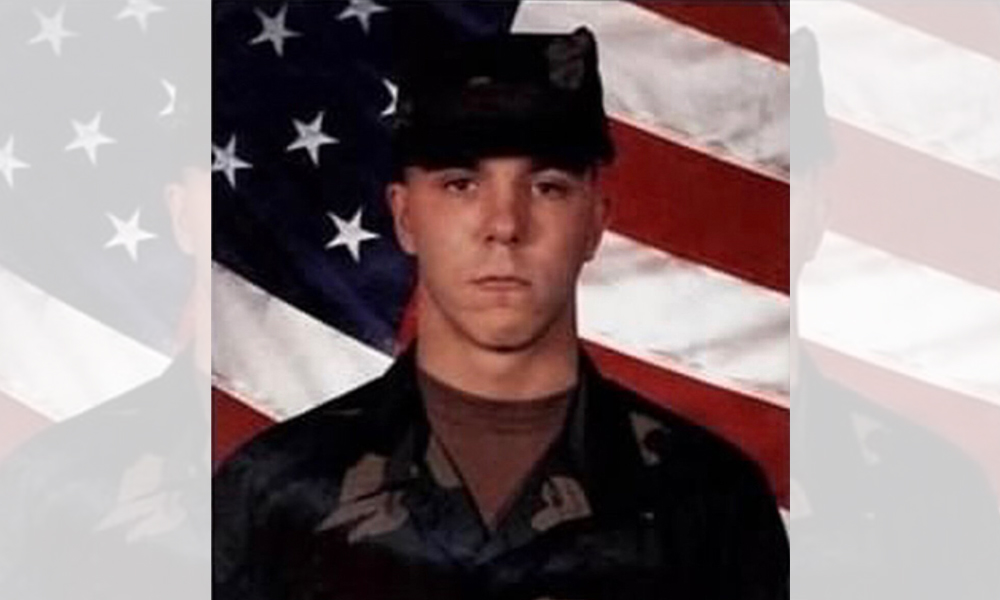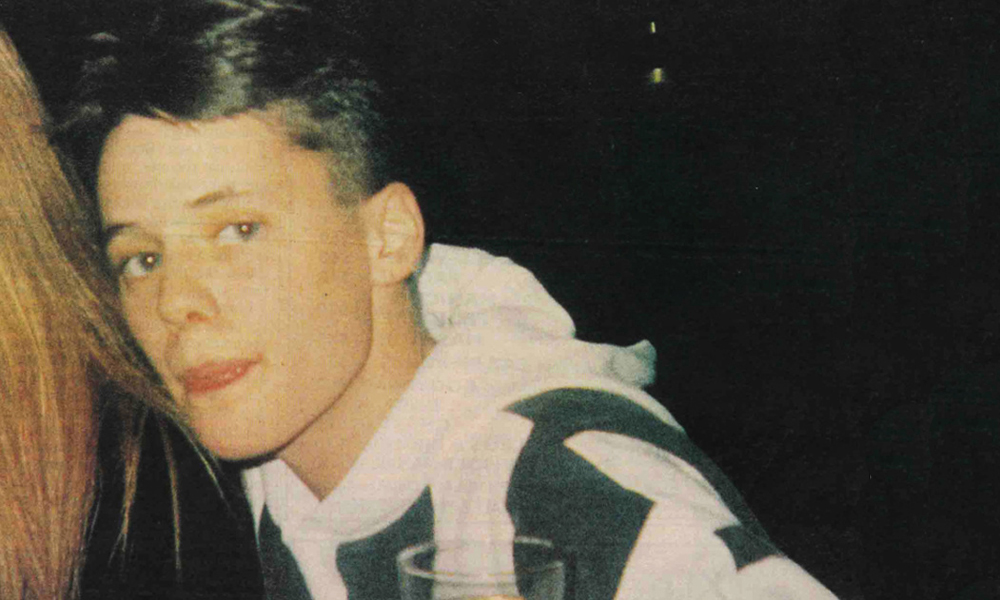Today in 2SLGBTQI+ history…
Pfc. (Private First Class) Barry Winchell of the 101st Airborne Infantry was one of the earliest martyrs of Don’t Ask, Don’t Tell (DADT), the official United States policy on military service for non-heterosexual people that was in effect from Feb. 28, 1994, until Sept. 20, 2011. Winchell was murdered in his barracks at Fort Campbell, Kentucky, one of the nation’s largest army bases, in the pre-dawn hours of July 5, 1999, while he lay sleeping on his cot. He was 22 years old.
At around 2 am on July 5, 1999, Winchell was brutally beaten with a Louisville Slugger baseball bat by Private Calvin N. Glover of Sulphur, Oklahoma, while Winchell’s roommate Specialist Justin R. Fisher of Lincoln, Nebraska, encouraged the attack. Both had been drinking beer throughout the day.
Winchell never regained consciousness after the attack. The next day, on July 6, 1999, Winchell, his face swollen beyond recognition, died of massive head injuries at the Vanderbilt University Medical Center in Nashville, Tennessee.
Rumours had circulated on the post beforehand that Winchell, from Kansas City, Mo., was gay, and it was later revealed that he had been dating a transgender performer named Calpernia Adams, whom he had met on a trip to a Nashville transgender club.
Glover and Fisher’s trial, which came just a month after the conviction of two Wyoming men for the murder of a gay student, Matthew Shepard, received nationwide publicity and led the army to carry out a detailed investigation into the military’s treatment of gay service personnel. An investigation by the advocacy group Servicemembers Legal Defense Network found that Winchell had been the target of constant anti-gay harassment in the months leading up to his murder.
Glover was convicted of premeditated murder and sentenced to life in prison, while Fisher was sentenced to 12 1/2 years in prison (however, he only served seven).
Winchell’s mother, Patricia Kutteles, and her husband, Wally, went to the press following the trial calling for a re-examination of the military’s “Don’t ask, don’t tell” policy. The Winchell case galvanized a national review and reappraisal of the controversial military policy, and several legal challenges to DADT were filed in the early 2000s, but the repeal of the discriminatory law didn’t happen until September 20, 2011.






POST A COMMENT